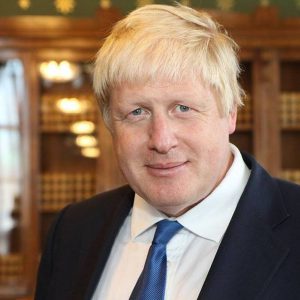A Brief Colonial History Of Ceylon(SriLanka)
Sri Lanka: One Island Two Nations
A Brief Colonial History Of Ceylon(SriLanka)
Sri Lanka: One Island Two Nations
(Full Story)
Search This Blog
Back to 500BC.
==========================
Thiranjala Weerasinghe sj.- One Island Two Nations
?????????????????????????????????????????????????Friday, July 21, 2017
The 2016 Foreign & Commonwealth Office report on Human Rights and Democracy was presented to the UK Parliament by the Secretary of State for Foreign and Commonwealth Affairs.
According to the report published yesterday, in 2015, the Foreign and
Commonwealth Office (FCO) designated 30 “Human Rights Priority
Countries” (HRPCs) including Sri Lanka. The other HRPCs areAfghanistan,
Bahrain, Bangladesh, Burma, Burundi, Central African Republic, China,
Colombia, Democratic People’s Republic of Korea, Democratic Republic of
Congo, Egypt, Eritrea, Iran, Iraq, Israel and the Occupied Palestinian
Territories, Libya, Maldives, Pakistan, Russia, Saudi Arabia, Somalia,
South Sudan, Sudan, Syria, Turkmenistan, Uzbekistan, Venezuela, Yemen
and Zimbabwe.
“We designated HRPCs following careful consideration against three
separate criteria: the human rights situation in the country; the
country’s human rights trajectory; and the UK’s ability to influence
change. The purpose of selecting HRPCs was to help us prioritise our
efforts. This is not to say that we do not work on human rights in many
other countries in the world, and indeed through multilateral fora.
HRPCs have been treated as priorities for funding from the Magna Carta
Fund for Human Rights and Democracy. The cut off point for this report
is 31 December 2016. At https://www.
gov.uk/government/collections/human-rights-and-democracyreport-2015-priority-country-reports
you will find our latest assessments of human rights in the HRPCs.”
said the Foreign & Commonwealth Office.
“Our Annual Human Rights Report reviews developments over the last
twelve months. This year it paints a stark picture of continued human
rights violations and abuses in Syria, Iraq, South Sudan, the Democratic
Republic of Congo, and many other countries across every continent.
However, the picture is not unremittingly bleak, and the UK has been
instrumental in promoting and protecting human rights in many areas
around the world. For example, a landmark Human Rights Council
Resolution at the UN, co-tabled and driven forward by the UK,
successfully encouraged the Sri Lankan Government to
continue making progress on promoting reconciliation, accountability
and human rights, in line with its commitments.” said the Minister for
Human Rights, Lord Ahmad of Wimbledon.
“Supporting reconciliation and reform in Sri Lanka remained important
throughout 2016. In June the UN High Commissioner for Human Rights Zeid
Ra’ad Al Hussein provided an update on implementation of HRC resolution
30/1 on Sri Lanka. The UK will continue to support the Government of Sri Lanka in
its fulfilment of resolution 30/1, encouraging determined political
leadership and inclusive consultations with all communities.” the report
highlighted.
We publish below the relevant section on Sri Lanka:
The human rights situation in Sri Lanka saw some improvement in 2016.
The Government of Sri Lanka made progress against some of its
commitments reflected in UN Human Rights Council (HRC) Resolution 30/1,
but much remains to be done. The UK welcomed the passing of legislation
establishing an Office of Missing Persons. This was an important step
towards reconciliation, although it is yet to come into operation. A
constitutional reform process is underway. It is hoped that this will
address issues of devolution and introduce a Bill of Rights. The Sri
Lankan Government is committed to repealing the much criticised
Prevention of Terrorism Act (PTA) and is drafting new counter-terrorism
legislation which it intends will be compliant with international human
rights standards. These would be important steps in removing historic
grievances and strengthening human rights and the rule of law in Sri
Lanka.
The government announced further land releases in 2016. While the
military maintained a significant presence in the north, the lower
profile it took was generally welcomed. The UK has consistently called
for the acceleration of land releases and the demilitarisation of the
north. Some prisoners held under the existing PTA were released, though
many remain in detention without charge. Reports of surveillance,
intimidation and harassment by the security forces continued in the
north and east, although at much lower levels than under the previous
government. Intercommunal tensions remained an area of concern. Tensions
were fuelled by hate speech by members of extremist nationalist groups.
Sri Lanka continued to engage with the UN and invited a number of UN
experts to visit the country, including the UN Special Rapporteur on
Torture. He reported full cooperation by the government, but raised
concerns about the standard of detention centres and continued cases of
torture.
Discrimination against LGB&T persons remained a problem, with a
report from Human Rights Watch highlighting that transgender people, and
others who did not conform to social expectations about gender, faced
discrimination, abuse and mistreatment.



